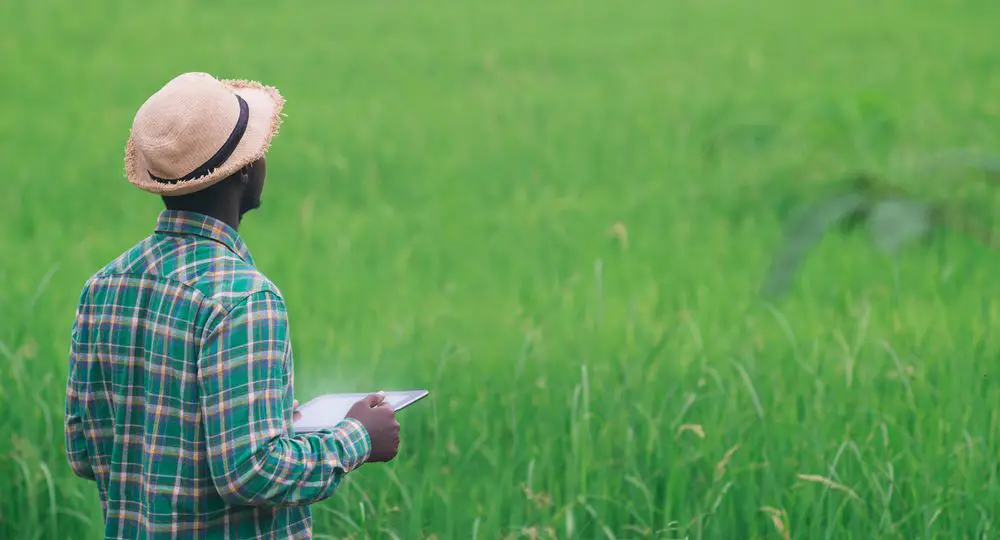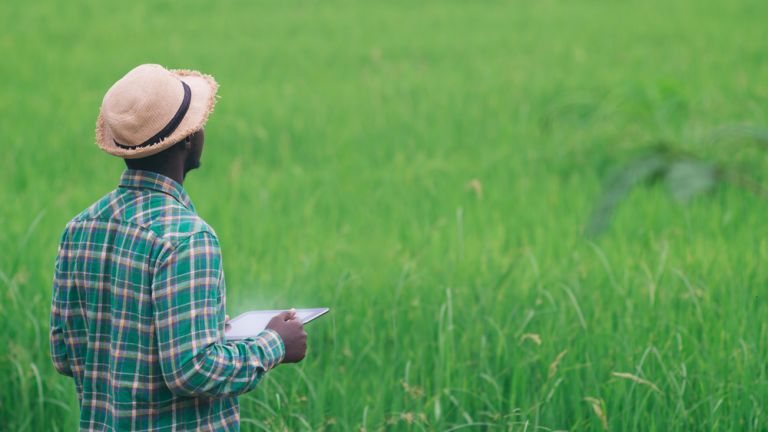



Author: Adedotun Adeite
AI-Powered Agriculture: Agriculture, a timeless and essential profession, supports the livelihoods of nearly 2 billion people and ranks as the world’s second-largest employment sector. Beyond job creation, agriculture is pivotal for national income, food security, and raw material production, underlining its central role in the global economy.
With the global population projected to exceed 9 billion by 2050, there’s an urgent need for a 70% increase in agricultural production to meet the growing demands. However, achieving this growth is challenged by limited arable land, water scarcity, and the depletion of crucial agricultural resources.
To tackle these challenges, innovative solutions are imperative, and Artificial Intelligence (AI) emerges as a promising avenue. AI, which replicates human intelligence in machines, finds applications across diverse industries, from virtual assistants to self-driving cars. Agriculture is no exception, witnessing a continuous evolution of AI-driven solutions.
Here are four pivotal AI solutions in agriculture:
AI-Powered Weather Forecasting:
Global warming and pollution disrupt traditional farming, challenging optimal planting times. AI weather forecasting empowers farmers with insights for better crop choices and planting schedules, boosting yields.
Precision Farming and Predictive Analytics:
Advancements in AI have given rise to applications and tools that offer farmers precise data for controlled farming. These solutions guide farmers in efficiently managing water resources, implementing crop rotation, timing harvests, selecting suitable seeds, optimizing planting methods, pest control, nutrition management, and more.
Soil and Plant Health Monitoring:
The quality of soil and crop health profoundly affects harvest quality. Monitoring and ensuring proper plant growth, detecting pests and diseases, applying appropriate fertilization, and managing other critical tasks can be daunting, especially on extensive farmlands. AI-based solutions, exemplified by initiatives like Babban Gona, utilize basic smartphone technology to help farmers identify and address soil and plant issues efficiently.
Addressing Internet Accessibility Challenges:
While AI offers immense potential for agriculture, many farmers in rural areas, particularly in Africa, grapple with limited internet access. Studies reveal that less than 40% of household farmers in Africa can connect to the internet due to inadequate ICT infrastructure. This internet accessibility challenge obstructs farmers from accessing essential information for profitable farming and leveraging AI-based farming solutions, which often rely on internet connectivity.
To tackle this issue, organizations like Babban Gona design AI solutions for rural farmers with limited internet. These solutions feature offline capabilities, enabling use without internet. Mobile apps integrate AI models for predictions and data collection, even in low-connectivity areas. Later, data can sync with servers for comprehensive analysis when users gain better internet access.
In conclusion, AI transforms agriculture, overcoming resource limits and aiding farmers with limited internet access. It ensures sustainable, profitable farming amidst global population growth.


